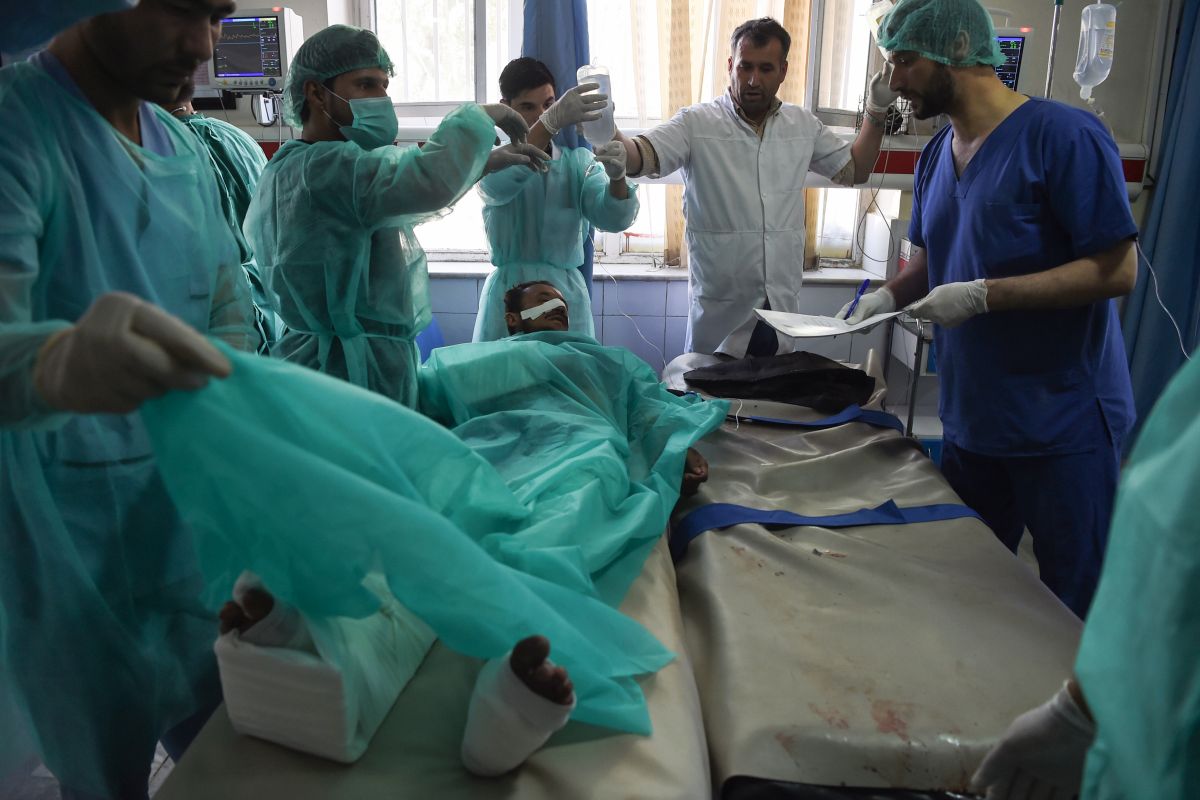The peace process has failed in Afghanistan and the negotiations in Doha have been reduced to irrelevance. Eleven days before the presidential election, the Taliban has buttressed its opposition to the democratic engagement with the killing of 48 people in two separate attacks near Kabul. It was a targeted offensive at an election rally that was scheduled to be addressed by President Ashraf Ghani. Having vowed to disrupt the elections, Tuesday’s butchery has followed the infructuous talks between the US and the insurgent group.
It is chilling to imagine that the Taliban had planned a surgical strike on Mr Ghani, who has escaped unhurt. He is seeking a second five-year term in the September 28 election. While accepting the US as the honest broker in Qatar, the militants have consistently been against the government, which is why the Ghani dispensation was excluded from the high table in Doha.
The Taliban has confirmed that the attack near the President’s rally was deliberately aimed at disrupting the elections in a direly fractious land. “We had already warned people not to attend election rallies. If they suffer any losses, that is their own responsibility.” The outrage proves that the Taliban are not interested in reconciliation, let alone peace and stability. Swiftly enough, the United Nations has accused the Taliban of showing what it calls “despicable disrespect for civilian life and the fundamental human right to participate in the democratic process”.
Donald Trump’s foreign policy has hit the buffers yet again. He has nothing to show in Afghanistan before the first vote is cast. Just as he has nothing to show in Iran, Syria, North Korea and Venezuela. It is increasingly inconsequential whether an agreement had been concluded in Doha; had it attained fruition, it would have facilitated the pullout of US troops from its longest war, which began in October 2001 in the immediate aftermath of 9/11. Equally, the withdrawal of hundreds of thousands of American troops will render the counry’s internal security apparatus ever so brittle. The nub of the matter must be that even a tentative agreement is now in tatters.
The plot thickens with the Taliban warning of more violence in course of the ten days before the elections. Afghanistan’s tryst with democracy had been overshadowed by the US-Taliban taks; many had expected the vote to be cancelled if a deal was concluded. But with the deal off, Ghani and his rivals have jumped into the fray again. Even if the mandate is clear, it is extremely doubtful if the government and the insurgents can work towards an enduring peace. Paradoxically, Trump’s declaration that US-Taliban talks are “dead” has spurred the militants to declare that the only other option was “more fighting”. Tuesday demonstrated that the first can fructify into the second.











